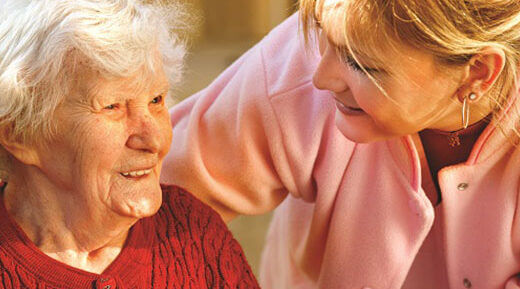
Page contents
- At a glance
- What does Shared Lives mean?
- Who can benefit from the scheme?
- What do Shared Lives carers do?
- Who funds Shared Lives?
- How much do Shared Lives carers get paid?
- Tax breaks for carers
- Can anyone be a Shared Lives carer?
- What is it like to live with a carer?
- Shannon: ‘It’s changed my life for the better’
- FAQs
Page contents
- At a glance
- What does Shared Lives mean?
- Who can benefit from the scheme?
- What do Shared Lives carers do?
- Who funds Shared Lives?
- How much do Shared Lives carers get paid?
- Tax breaks for carers
- Can anyone be a Shared Lives carer?
- What is it like to live with a carer?
- Shannon: ‘It’s changed my life for the better’
- FAQs
At a glance
- Shared Lives is a care service where approved carers support adults or young people in the carer’s home through day support, short breaks or long-term placements.
- It helps people with needs such as learning disabilities, mental health issues, physical disabilities or young people leaving care to live in a family-style environment.
- Carers are self-employed. They typically earn £350-£650 per week per person living with them, plus contributions towards household costs and access to tax relief.
- Anyone aged 18+ with a spare room, time to care and successful training/assessment can apply.
What does Shared Lives mean?
Shared Lives is a care service that recruits and trains Shared Lives carers to support you if you are a young person or adult who cannot live independently without support.
You can visit or live with a Shared Lives carer in their home with their family.
This is different from live-in care which involves a carer coming and living with you in your home.
A Shared Lives carer can provide day support, short breaks or long-term support for one or more adults.
Once a carer is matched with you, you can visit or live with the Shared lives carer in their home with their family. You and the Shared Lives carer, must be happy about who you are going to live with or visit.
If you are an adult needing support, you may:
- Be a regular visitor to the carer’s home for day support but may not live with the carer.
- Stay overnight in their home for a specific number of nights a week /month.
- Live in the carer’s home temporarily as a short break (respite for usual carer).
- Live in the carer’s home as part of a long-term placement.
Who can benefit from the scheme?
If you need support, you may have learning disabilities, physical disabilities, dementia, mental health issues, alcohol/drug dependence or other conditions that make it harder for you to live alone.
Shared living may also benefit a young person who has left the care system and needs somewhere to live and a family environment.
This care service is open to you if you have been assessed under the Care Act (2014) with a care needs assessment and referred by your local authority.
What do Shared Lives carers do?
- Carers often treat you like part of their own family. They may even go on holiday with you, take you out shopping, to the cinema and to family celebrations like birthday parties.
- Support you can receive may include personal care (help having a shower, getting dressed), medicine management, meal preparation, assistance to attend medical appointments, social activities, pursue hobbies, education and work opportunities.
- The carer has the flexibility to decide how much work they take on. This includes how many people they care for, how often and for how long.
Who funds Shared Lives?
Local authorities are investing in these care services.
- The carer is paid for the care they provide to someone. This is based on that person’s local authority care assessment of what support they need.
- An adult needing support will contribute towards accommodation and living costs from their housing benefit part of Universal Credit, ESA – Employment Support Allowance, Personal Independence Payment (PIP), Severe Disability Premium.
How much do Shared Lives carers get paid?
The scheme’s carers are self-employed. They receive a fee, rather than being paid a salary.
Carers are not employed by the Shared Lives scheme or the person they are caring for.
The carers are paid by the Shared Lives scheme. This is usually funded by the local council or NHS. Continuous work cannot be guaranteed for a carer.
- A carer can earn between £350 – £650 a week per person when someone lives with them.
- A carer can receive payments for one or more people visiting them regularly or living with them.
- Carers are paid a fixed fee to support someone living with them.
- Carers receive a financial contribution towards their accommodation/rent and household costs e.g. food, electricity and water.
Tax breaks for carers
The government has increased the tax relief threshold known as Qualifying Care Relief (QCR) for Shared Lives carers.
If carers’ income in a tax year is less than the qualifying amount, they don’t have to make any Class 4 National Insurance contributions or pay any Income Tax on a Shared Lives income.
Can anyone be a Shared Lives carer?
Carers must:
- Be at least 18 years old.
- Have a good-sized spare bedroom.
- Be a full-time UK resident or have leave to remain.
- Have the time to care for someone.
- If you have a criminal conviction that relates to an offence against children or vulnerable adults or a sexual offence, they cannot be a Shared Lives carer.
- You must be trained and assessed by a Shared Lives scheme before being approved as a carer.
- No qualifications or experience are required to be a carer but you will receive training. Mandatory training includes First Aid, Medication Awareness, Food Safety, Hydration, Nutrition, Infection Control, Moving and assisting, Safeguarding Adults.
Shared Lives schemes are inspected and regulated by England’s Care Quality Commission (CQC). If you would like to become a carer with the scheme, contact Shared Lives Plus. It has a network of carers across the UK.
What is it like to live with a carer?
A carer can share not just their home but also their family life with you. This happens as a carer builds a good relationship with you.
The benefits of this scheme include helping you to grow in confidence, become independent, socialise, make new friends, learn new skills, improve educational and employment opportunities.
Shannon: ‘It’s changed my life for the better’
Kuldip lives in Godalming, Surrey has been a Shared Lives carer for seven years with Surrey Choices Shared Lives.
The former foster carer decided to make a career change, so she become a Shared Lives carer after her grandchildren came to live with her.
Kuldip shared her home and has given support to Shannon.
Kuldip said: “I was always interested in people with learning disabilities, mental health [conditions].
“I like to do things with them together with them, like cooking, shopping and going out, sitting down, talking about your day.”
Shannon said: “It’s changed my life for the better. I had so much trouble in my life. Since I’ve been here she’s taught me how to do things that I couldn’t do. Like help me to cook properly, do my cleaning, and doing what she does best.
“She treats me like her own granddaughter. She welcomed me so much since I’ve been here”.
Kuldip added: “I don’t feel like I do anything special and to me I mean I like challenge. I like to get the best of everything. You know I don’t like to give in. I just see what I can do, do your best.
“As long as I can, you know walk and I can do things, I’ll carry on doing it. I enjoy doing what I’m doing”.
FAQs
How much are Shared Lives carers paid?
Carers are self-employed and therefore they receive a fee, rather than being paid a salary. According to the UK-wide scheme Shared Lives Plus Shared Lives Plus, a carer may earn between £350 – £650 a week per person when someone lives with them.
What is a Shared Lives scheme?
Shared Lives schemes is a model of care which enables an adult who needs support and/or accommodation to move into or regularly visits the home of an approved Shared Lives carer.
What are the benefits of Shared Lives?
A Shared Lives carer can share not just their home but also their family life with the person receiving support, as they bond with them. Shared Lives care is about building good relationships, helping adults grow in confidence, become independent, socialise, make new friends and learn new skills.

Find a provider near you



